#Otto Fischer
Text
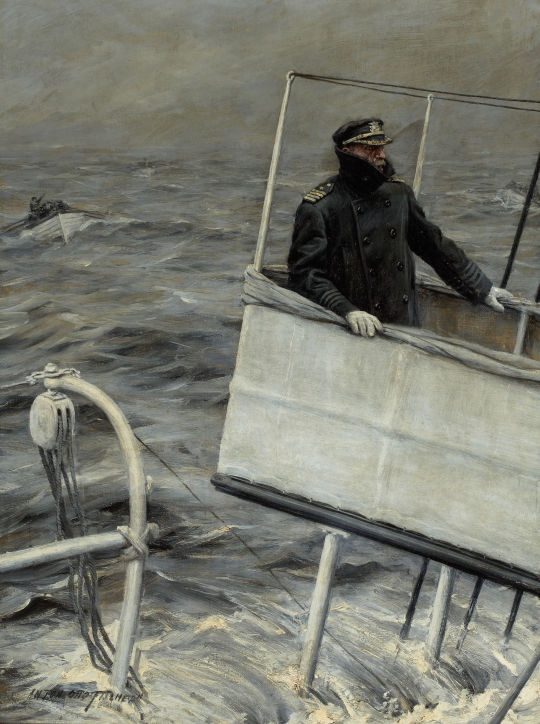
Anton Otto Fischer - Captain at Sea (1911)
219 notes
·
View notes
Text

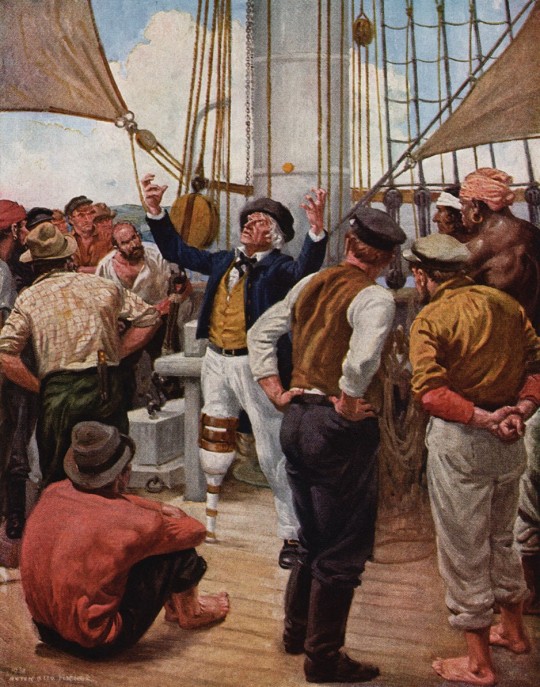

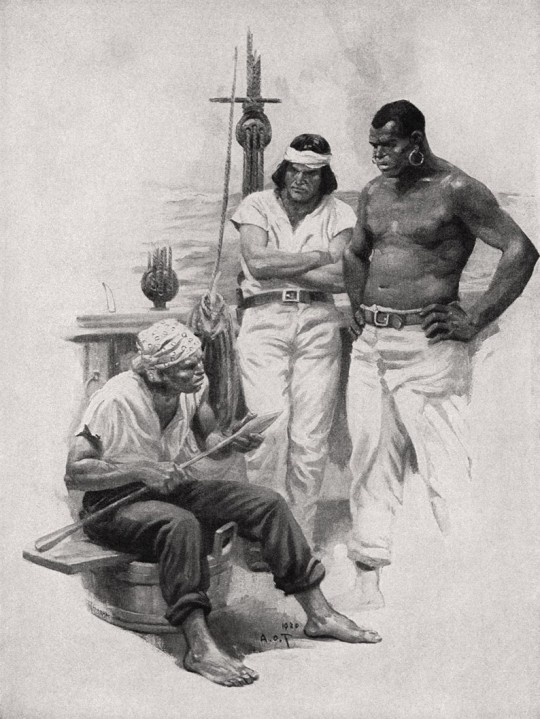





Moby Dick - art by Anton Otto Fischer (1930)
#anton otto fischer#moby dick#herman melville#book illustrations#litterature#captain ahab#white whale#adventure novels#1930s#1930
113 notes
·
View notes
Text
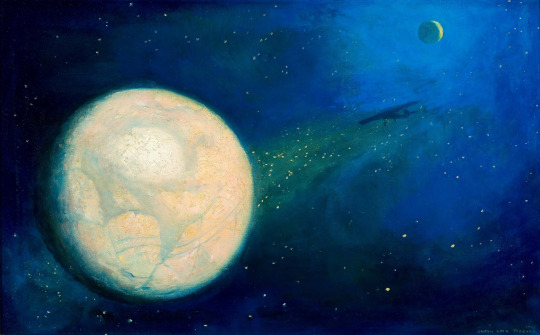
"Far From Earth"
Saturday Evening Post story illustration by Anton Otto Fischer, 1929
#Anton Otto Fischer#1929#1920s#saturday evening post#far from earth#space#vintage#scifi#scifi art#science fiction#science fiction art#art#illustration#painting
70 notes
·
View notes
Text

Parsee, Crouching in the Bow, Sat Watching the Sharks that Spectrally Played Round the Whale by Anton Otto Fischer (1931), illustration for Herman Melville’s Moby Dick (1851)
155 notes
·
View notes
Text
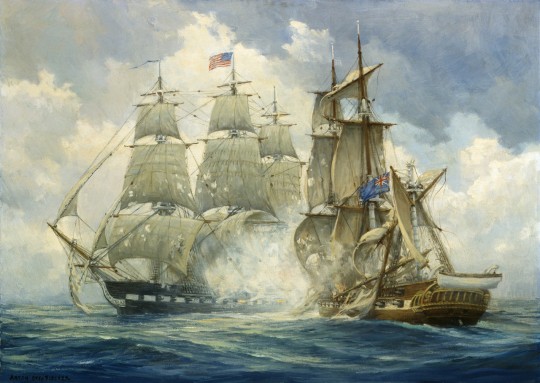
Shocked by American naval victories in 1812, the British credited runaways among the victorious crews. The British diplomat, Thomas Barclay, insisted that former Britons comprised two-thirds of the sailors on American warships: “It is an abuse of words to call the crews of the U.S. Ships American. They are British crews commanded by American officers.” They fought so hard and well, Barclay insisted, from a desperate fear of capture and execution as deserters. “The naval engagements which have taken place may with truth be termed actions between British Seamen in different Ships,” he concluded.
— Alan Taylor, The Civil War Of 1812: American Citizens, British Subjects, Irish Rebels, and Indian Allies
USS Constitution vs. HMS Java, by Anton Otto Fischer.
#War of 1812 Wednesday#war of 1812#age of sail#naval history#royal navy#us navy#thomas barclay#uss constitution#hms java#age of fighting sail#anton otto fischer#naval art#naval battle#military history#lmaoooooo#'those guys beat us therefore they are secretly british'
105 notes
·
View notes
Text
Vera Fischer, José Wilker, Bonitinha Mas Ordinária, Otto Lara Resende (1981)
13 notes
·
View notes
Text

2 notes
·
View notes
Text
Because of the last post I decided to look up 'Im Wagen vor mir' again and found out there's a parody duet with Otto Waalkes and Helene Fischer which is a combination that absolutely kills me holy shit
#otto waalkes is like the german comedian#or was at least not sure how contemporary he still is#but he is the reason i cannot watch ice age in english#he just is sid#and helene fischer is a#ahm#singer#she makes what we call Schunkelmusik#i can't really translate that#she is extremely popular in older groups#and the absolute butt of every joke of everyone younger than like 60#i will not comment on wether she deserves it or not#mostly cause I don't know
3 notes
·
View notes
Text
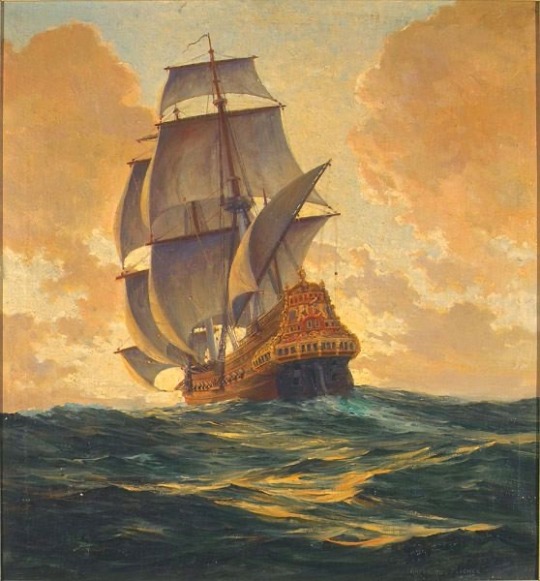
anton otto fischer. galleon at full sail, 1935.
2 notes
·
View notes
Text
Books On Books Collection - Lyn Davies
Books On Books Collection – Lyn Davies
A is for Ox (2006)
A is for Ox: A Short History of the Alphabet (2006)Lyn DaviesCasebound, doublures matching slipcase. Slipcase: H205 x W133 mm. Book: H197 x W128 mm. 128 pages. Acquired from The Old Bakehouse, 13 July 2021.Photos: Books On Books Collection.
There are numerous histories of the alphabet. Some are even titled the same as Lyn Davies’ A is for Ox. Several books take the…
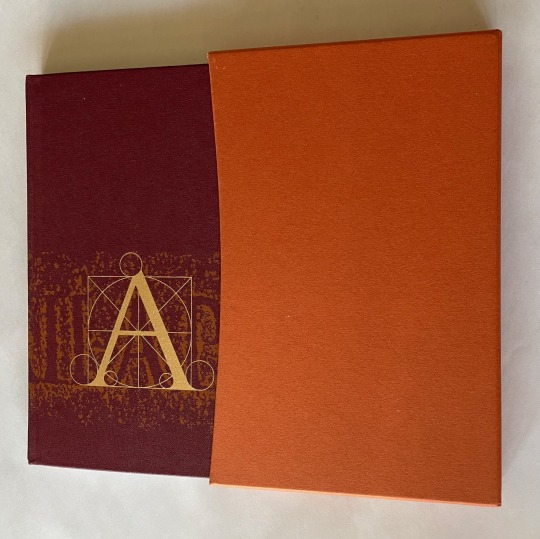
View On WordPress
0 notes
Text
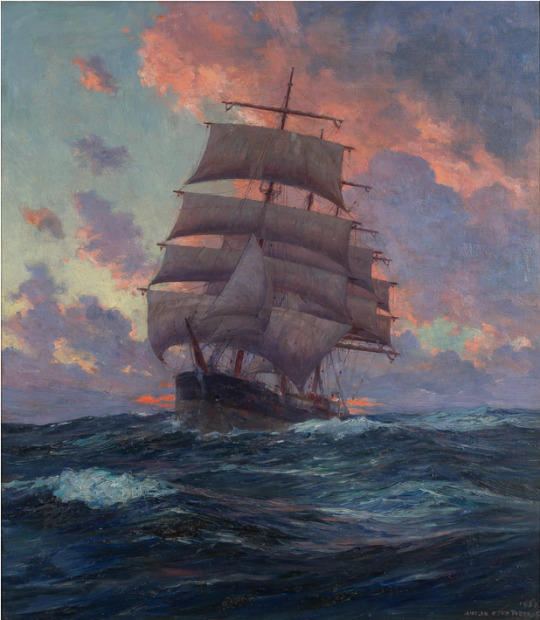
Sailing at sunset, by Anton Otto Fischer, 1938
328 notes
·
View notes
Text

Sailing Days: On The Yard-Arm, Furling The Mainsail Anton Otto Fischer
44 notes
·
View notes
Text
The logic of cultural assimilation and the desire to climb the ladder of prestige led the Jewish bourgeoisie to send its sons to the University, especially towards the end of the nineteenth century:
“Just like the majority of German businessmen, Jews wanted to climb socially… They wanted their sons and sons-in-law to be more valued than they were. A career as an officer or as a high-ranking government official, which were the goals of a young Christian man, was closed to Jews … only university studies were open to him.”
As a result, in 1895 Jews comprised 10% of the student body in German universities, which was ten times the percentage of Jews in the overall population (1.05%). This massive presence of bourgeois Jewish youth in higher education quickly led to the formation of a new social category: the Jewish intelligentsia. Jewish intellectuals of German culture had, of course, existed since the late eighteenth century (Moses Mendelssohn), but it was only at the end of the nineteenth century that the phenomenon became so widespread as to constitute a new social fact. These Jewish intellectuals, déclassé, unstable and free of any precise social attachment, were a typical example of the sozialfreischwebende Intelligenz that Mannheim spoke of. Their condition was eminently contradictory: deeply assimilated yet largely marginalized; linked to German culture yet cosmopolitan; uprooted and at odds with their business and bourgeois milieu of origin; rejected by the traditional rural aristocracy yet excluded in career terms within their natural sphere of acceptance (the university). In a state of ideological availability, they were soon attracted to the two principal poles of German cultural life, which could be named after the famous characters from Thomas Mann’s Magic Mountain: ‘Settembrini’, the liberal, democratic and republican philanthropist, and ‘Naphta’, the conservative/revolutionary romantic.
For many young Jewish intellectuals, rationalism, progressive evolutionism, Aufklärung and neo-Kantian philosophy became the primary reference, in some cases combined with a Judaism that was diluted or reduced to monotheist ethics (Hermann Cohen). From this world-view several political options were available, ranging from moderate liberalism (the ideology of the Jewish bourgeoisie itself), to social democracy (Eduard Bernstein), Marxism (Max Adler, Otto Bauer and the Austrian Marxists) and even Communism (Paul Levi, Ruth Fischer, Paul Frölich, August Thalheimer).
Nevertheless, at the turn of the century, anti-capitalist romanticism was the dominant movement within the culture of Mitteleuropa. Sociologically speaking, it was inevitable that a significant portion of the new university-trained Jewish intelligentsia would be attracted by the romantic critique of industrial civilization: ‘Naphta!’ The intelligentsia eagerly discovered the nostalgic and anti-bourgeois Weltanschauung predominant in academia – notably in the Geisteswissenschaften (Humanities), where the majority of Jewish students enrolled. These students subsequently rejected their fathers’ business careers, revolted against their bourgeois family milieu and aspired intensely to an ‘intellectual life style’. This generational break, which many Jewish intellectuals speak of in their autobiographies, opposed the anti-bourgeois youth – passionately interested in Kultur, spirituality, religion and art – to their entrepreneurial parents – merchants or bankers, moderate liberals and good German patriots, indifferent to religious matters. In a recent autobiographical interview, Leo Löwenthal, the Frankfurt School sociologist of literature, summarized the feeling that was common among many intellectuals of his generation: ‘My family household, as it were, was the symbol of everything I did not want – shoddy liberalism, shoddy Aufklärung, and double standards.’
Redemption and Utopia: Jewish Libertarian Thought in Central Europe, Michael Löwy
64 notes
·
View notes
Text
Opera on YouTube, Part 2
Le Nozze di Figaro (The Marriage of Figaro)
Glyndebourne Festival Opera, 1973 (Knut Skram, Ileana Cotrubas, Kiri Te Kanawa, Benjamin Luxon; conducted by John Pritchard; English subtitles)
Jean-Pierre Ponnelle studio film, 1976 (Hermann Prey, Mirella Freni, Kiri Te Kanawa, Dietrich Fischer-Dieskau; conducted by Karl Böhm; English subtitles) – Acts I and II, Acts III and IV
Tokyo National Theatre, 1980 (Hermann Prey, Lucia Popp, Gundula Janowitz, Bernd Weikl; conducted by Karl Böhm; Japanese subtitles)
Théâtre du Châtelet, 1993 (Bryn Terfel, Alison Hagley, Hillevi Martinpelto, Rodney Gilfry; conducted by John Eliot Gardiner; Italian subtitles)
Glyndebourne Festival Opera, 1994 (Gerald Finley, Alison Hagley, Renée Fleming, Andreas Schmidt; conducted by Bernard Haitink; English subtitles)
Zürich Opera House, 1996 (Carlos Chaussón, Isabel Rey, Eva Mei, Rodney Gilfry; conducted by Nikolaus Harnoncourt; English subtitles)
Berlin State Opera, 2005 (Lauri Vasar, Anna Prohaska, Dorothea Röschmann, Ildebrando d'Arcangelo; conducted by Gustavo Dudamel; French subtitles)
Salzburg Festival, 2006 (Ildebrando d'Arcangelo, Anna Netrebko, Dorothea Röschmann, Bo Skovhus; conducted by Nikolas Harnoncourt; English subtitles) – Acts I and II, Acts III and IV
Teatro all Scala, 2006 (Ildebrando d'Arcangelo, Diana Damrau, Marcella Orasatti Talamanca, Pietro Spagnoli; conducted by Gérard Korsten; English and Italian subtitles)
Salzburg Festival, 2015 (Adam Plachetka, Martina Janková, Anett Fritsch, Luca Pisaroni; conducted by Dan Ettinger; no subtitles)
Tosca
Carmine Gallone studio film, 1956 (Franca Duval dubbed by Maria Caniglia, Franco Corelli, Afro Poli dubbed by Giangiacomo Guelfi; conducted by Oliviero de Fabritiis; no subtitles)
Gianfranco de Bosio film, 1976 (Raina Kabaivanska, Plácido Domingo, Sherrill Milnes; conducted by Bruno Bartoletti; English subtitles)
Metropolitan Opera, 1978 (Shirley Verrett, Luciano Pavarotti, Cornell MacNeil; conducted by James Conlon; no subtitles)
Arena di Verona, 1984 (Eva Marton, Jaume Aragall, Ingvar Wixell; conducted by Daniel Oren; no subtitles)
Teatro Real de Madrid, 2004 (Daniela Dessí, Fabio Armiliato, Ruggero Raimondi; conducted by Maurizio Benini; English subtitles)
Royal Opera House, Covent Garden, 2011 (Angela Gheorghiu, Jonas Kaufmann, Bryn Terfel; conducted by Antonio Pappano; English subtitles)
Finnish National Opera, 2018 (Ausrinė Stundytė, Andrea Carè, Tuomas Pursio; conducted by Patrick Fournillier; English subtitles)
Teatro alla Scala 2019 (Anna Netrebko, Francesco Meli, Luca Salsi; conducted by Riccardo Chailly; Hungarian subtitles)
Vienna State Opera, 2019 (Sondra Radvanovsky, Piotr Beczala, Thomas Hampson; conducted by Marco Armiliato; English subtitles)
Ópera de las Palmas, 2024 (Erika Grimaldi, Piotr Beczala, George Gagnidze; conducted by Ramón Tebar; no subtitles)
Don Giovanni
Salzburg Festival, 1954 (Cesare Siepi, Otto Edelmann, Elisabeth Grümmer, Lisa della Casa; conducted by Wilhelm Furtwängler; English subtitles)
Giacomo Vaccari studio film, 1960 (Mario Petri, Sesto Bruscantini, Teresa Stich-Randall, Leyla Gencer; conducted by Francesco Molinari-Pradelli; no subtitles)
Salzburg Festival, 1987 (Samuel Ramey, Ferruccio Furlanetto, Anna Tomowa-Sintow, Julia Varady; conducted by Herbert von Karajan; no subtitles)
Teatro alla Scala, 1987 (Thomas Allen, Claudio Desderi, Edita Gruberova, Ann Murray; conducted by Riccardo Muti; English subtitles)
Peter Sellars studio film, 1990 (Eugene Perry, Herbert Perry, Dominique Labelle, Lorraine Hunt Lieberson; conducted by Craig Smith; English subtitles)
Teatro Comunale di Ferrara, 1997 (Simon Keenlyside, Bryn Terfel, Carmela Remigio, Anna Caterina Antonacci; conducted by Claudio Abbado; no subtitles) – Act I, Act II
Zürich Opera, 2000 (Rodney Gilfry, László Polgár, Isabel Rey, Cecilia Bartoli; conducted by Nikolaus Harnoncourt; English subtitles)
Festival Aix-en-Provence, 2002 (Peter Mattei, Gilles Cachemaille, Alexandra Deshorties, Mirielle Delunsch; conducted by Daniel Harding; no subtitles)
Teatro Real de Madrid, 2006 (Carlos Álvarez, Lorenzo Regazzo, Maria Bayo, Sonia Ganassi; conducted by Victor Pablo Pérez; English subtitles)
Festival Aix-en-Provence, 2017 (Philippe Sly, Nahuel de Pierro, Eleonora Burratto, Isabel Leonard; conducted by Jérémie Rohrer; English subtitles)
Madama Butterfly
Mario Lanfranchi studio film, 1956 (Anna Moffo, Renato Cioni; conducted by Oliviero de Fabritiis; no subtitles)
Jean-Pierre Ponnelle studio film, 1974 (Mirella Freni, Plácido Domingo; conducted by Herbert von Karajan; English subtitles)
New York City Opera, 1982 (Judith Haddon, Jerry Hadley; conducted by Christopher Keene; English subtitles)
Frédéric Mitterand film, 1995 (Ying Huang, Richard Troxell; conducted by James Conlon; English subtitles)
Arena di Verona, 2004 (Fiorenza Cedolins, Marcello Giordani; conducted by Daniel Oren; Spanish subtitles)
Sferisterio Opera Festival, 2009 (Raffaela Angeletti, Massimiliano Pisapia; conducted by Daniele Callegari; no subtitles)
Vienna State Opera, 2017 (Maria José Siri, Murat Karahan; conducted by Jonathan Darlington; no subtitles)
Wichita Grand Opera, 2017 (Yunnie Park, Kirk Dougherty; conducted by Martin Mazik; English subtitles)
Teatro San Carlo, 2019 (Evgenia Muraveva, Saimir Pirgu; conducted by Gabriele Ferro; no subtitles)
Rennes Opera House, 2022 (Karah Son, Angelo Villari; conducted by Rudolf Piehlmayer; French subtitles)
#opera#complete performances#youtube#le nozze di figaro#the marriage of figaro#tosca#don giovanni#madama butterfly#madame butterfly#wolfgang amadeus mozart#giacomo puccini
31 notes
·
View notes
Text
December 29th? Who could forget USS Constitution vs. HMS Java day!


A contemporary drawing of the naval battle by Thomas Birch c. 1813 (Library of Congress).

USS Constitution vs HMS Java, by Anton Otto Fischer c. 1960 (Naval History and Heritage Command)
#war of 1812#age of sail#naval history#uss constitution#hms java#on this day#royal navy#us navy#military history#thomas birch#anton otto fischer#naval art#the sea#1810s
6 notes
·
View notes
